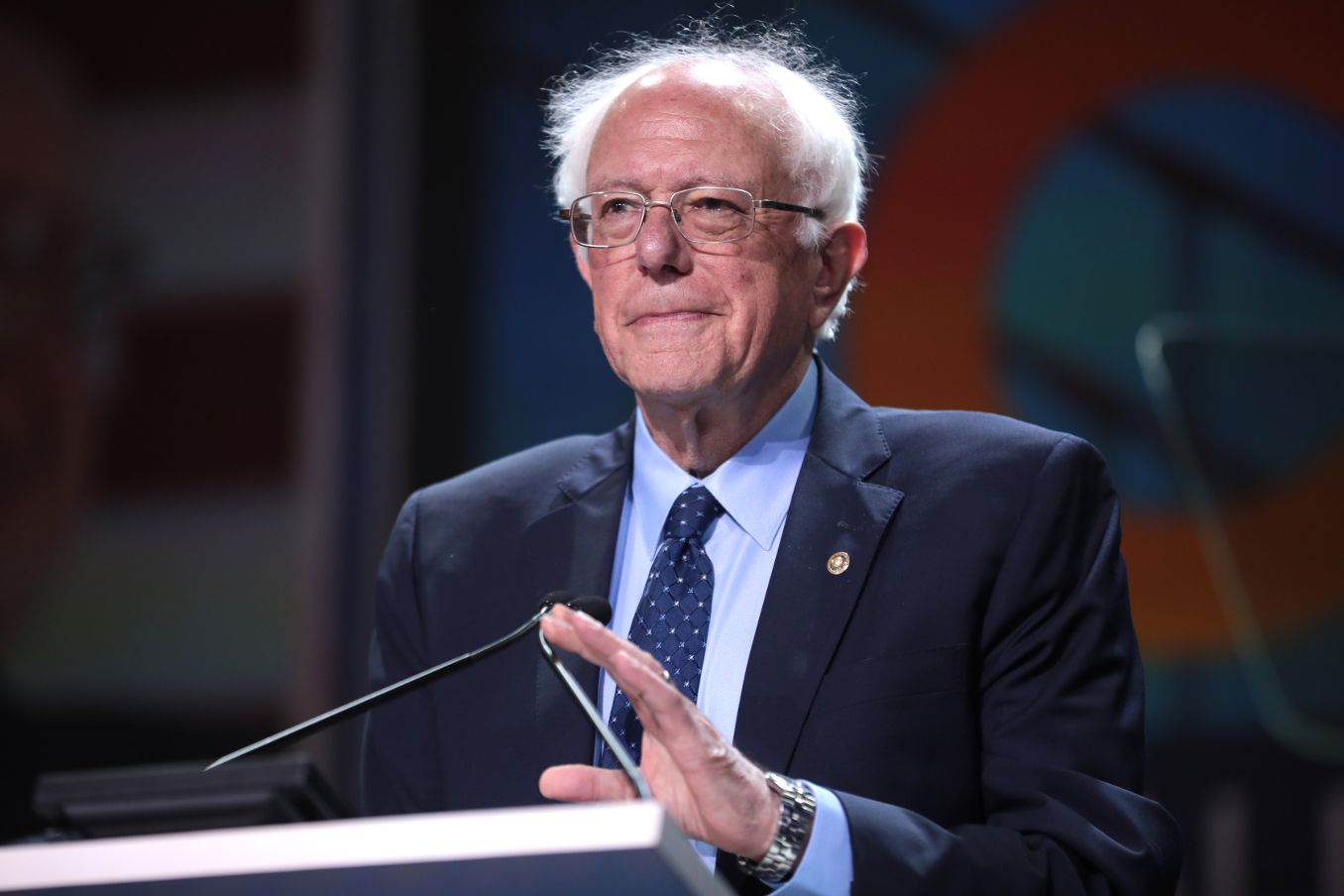The Candidate With the Most Votes Wins
Bernie Sanders believes the person with the most votes should be the nominee, and said so emphatically. The other candidates gave various versions of “follow the party rules” which would enable superdelegates to select someone who did not win the popular vote.

At the Democratic primary debate in Nevada (February 19, 2020), MSNBC moderator Chuck Todd asked the candidates a revealing question:
CHUCK TODD: Should the person with the most delegates at the end of this primary season be the nominee, even if they are short of a majority?
Bernie Sanders believes the person with the most votes should be the nominee, and said so emphatically. The other candidates gave various versions of “follow the party rules” which would enable superdelegates to select someone who did not win the popular vote.
Some people have accused Sanders of being hypocritical, since he took a different position in 2016 vis à vis the superdelegates. What may look like a contradiction superficially, however, is actually a problem of perspective. Are we evaluating those positions from within the existing system, or with an eye to changing the system itself?
In 2016 the superdelegates were only one aspect of a system which was heavily biased against Sanders. Technically, legally, it’s a political party and the people in control of the party can do whatever they want. That reality collides with the conceit that voters determine the party’s nominee. Because the two major parties have effectively locked out any third party, American suffrage exists at the whim of the dominant parties, which are not obligated to select their nominees in a democratic manner. That said, they have had to make concessions to at least give the illusion of democracy to their constituents.
It’s no contradiction to, on the one hand, decry the anti-democratic nature of the existing system, and on the other hand accept the reality that it is the existing system. To say Clinton “won” the primary in 2016 isn’t accurate, since there were obvious systemic biases she took advantage of as well as outright manipulation by the DNC (which, in turn, had been secretly expropriated by the Clinton campaign). “Win” is a word we use to describe victory in a fair contest, which 2016 wasn’t.
Appealing to the superdelegates to reverse Clinton’s “win” was totally legit in that non-democratic system, and if the superdelegates had acted in that way it would have been within the existing rules. Given the stakes, it was worth a shot. The superdelegates declined to intervene, and we ended up with Trump. In their hubris, the superdelegates dismissed the polls that showed Sanders trouncing Trump by 10 points, while Clinton was tied with him, within the margin of error. Hindsight is 2020, right?
In this election cycle things are different. For one thing, we are at a different point in the primary. At this point, at the election’s inception, we can argue that the process be genuinely democratic going forward, and that the party endorse a democratic result. It’s an argument, though. It’s demanding a systemic change within the party. However, the reality is that the party retains the power to choose whatever candidate they want, “in a smoke-filled room,” if that’s what they desire.
In 2020, the Democratic Party is headed for a reckoning because if Bernie Sanders wins a plurality of delegates but they deny him the nomination, their carefully crafted illusion of democracy will shatter, and with it the party’s perceived legitimacy. Regardless of whatever candidate they might choose as an alternative to the top vote-getter, the loss of legitimacy would be fatal in the general election.
On the other hand, if Sanders wins outright, or if he wins a plurality and the superdelegates are sane enough to endorse his nomination, then we will have done more than just made him the nominee—we will have changed the system. We will be in a position to rewrite the rules and make the Democratic Party actually democratic.
[Photo credit Gage Skidmore]
